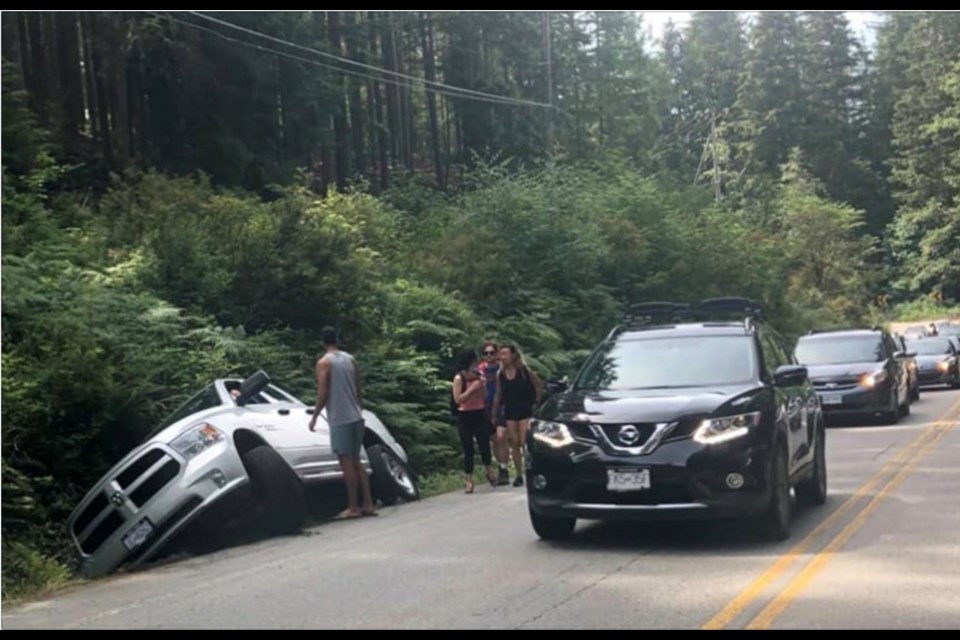As people look for a safe and convenient escape from COVID-19 hibernation, local parks have been flooded by hikers, dog walkers and cyclists alike.
But with many of those visitors come cars, so many at times that last summer, Port Moody and Belcarra shut down roadside parking in a bid to stave off crowds at Sasamat Lake and White Pine Beach.
Winter has done little to dampen park visitors. Belcarra Regional Park, which includes Sasamat Lake, saw a January surge of nearly triple the number of monthly visitors compared to those in the first month of 2020.
That’s prompted Metro Vancouver, which oversees the regional park system, to roll out a new pay parking scheme at some of its busiest parks.
Seasonal pay parking at Belcarra will begin April 1 and extend until Sept. 30. Costing $2.00 per hour, the paid parking will have no time limit, confirmed a spokesperson for Metro Vancouver. No parking fees will be charged between 7 a.m. and 10 a.m.
By setting the hourly parking fee at $2, Metro Vancouver is looking to balance crowd management without sacrificing equity, said John McEwen, chair of Metro Vancouver's Regional Parks Committee and mayor of Anmore.
"This is not a revenue generator. This is a traffic management tool," said McEwen. "We didn't want it to be more than a normal bus."
Parking fees will be invested back into the park and help with the cost of policing.
At Metro's other regional parks in the Tri-Cities — including Colony Farm, Minnekhada and yet to be opened Widgeon park — there are no plans to introduce a pay parking scheme. McEwen said the regional body is working with the city of Coquitlam to push accessing these parks through public transit, a special shuttle and carpooling with current pandemic restrictions in mind.
This isn't the first time the regional body has introduced pay parking at its parks. In some of the busier Metro parks, like Pacific Spirit near UBC and at the base of Grouse Mountain, pay parking is already in place.
Metro Vancouver is also planning to roll out pay parking access at Lynn Headwaters Regional Park by March 29 in conjunction with the District of North Vancouver.
"We had no idea the increased numbers we'd get through the pandemic," said McEwen, pointing to Belcarra and Lynn Valley.
Beyond the immediate public health crisis, moving to pay parking in the network's busiest parks will also contribute to the regional body's wider goal of reducing emissions from cars and managing demand from an influx of new Metro Vancouverites, a number that's expected to rise to a million new residents by 2050.
With many parks already reaching capacity, securing more land and encouraging park-goers to visit less explored parks will become increasingly important, said McEwen.
"As more and more residential towers get built, there's a huge demand on these parks," he said. "We need to secure more land."



